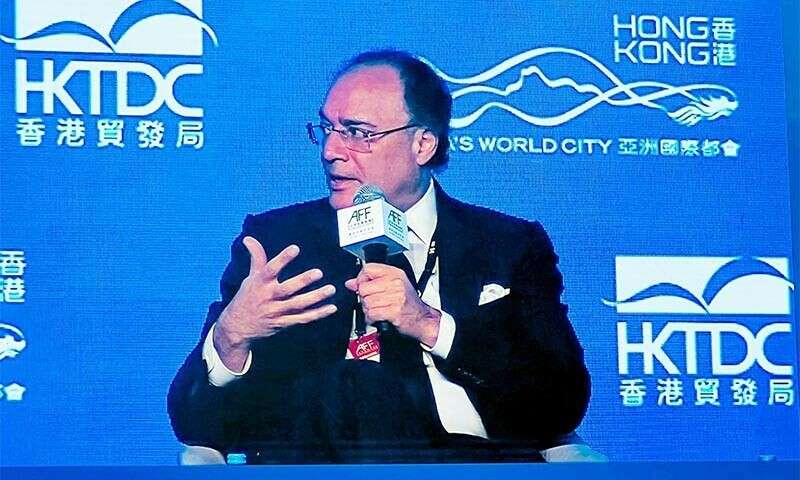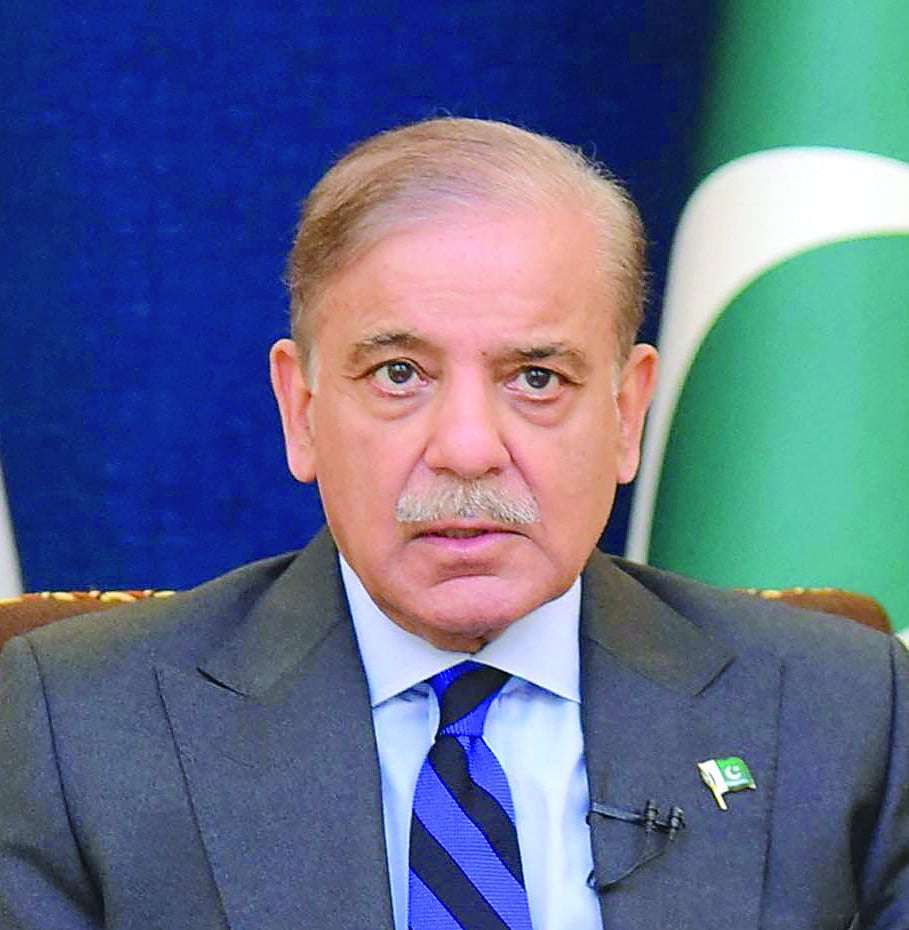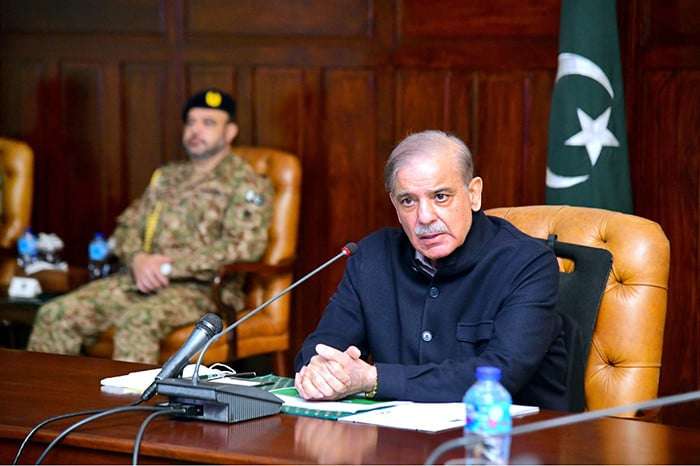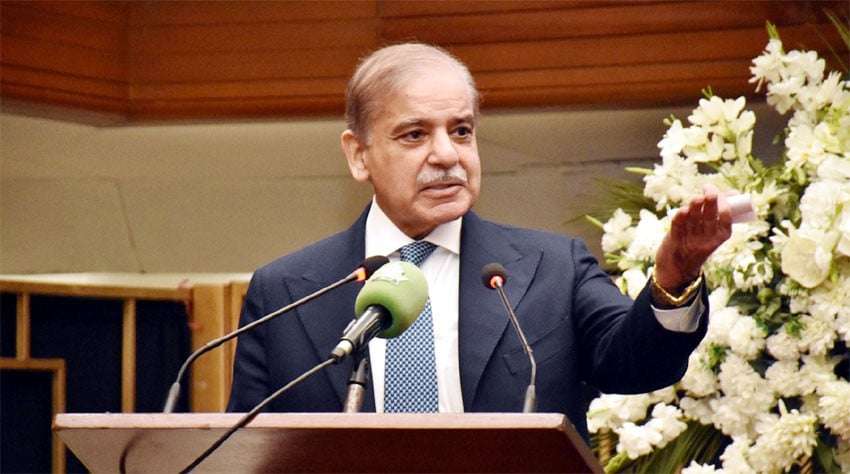Pakistan’s Finance Minister Aurangzeb Discusses Joint Ventures and Secondary Listings in Hong Kong
In an exclusive interview with South China Morning Post, Pakistan’s Finance Minister Muhammad Aurangzeb outlined the country’s aspirations to strengthen economic ties with Hong Kong through joint ventures and secondary listings. The interview, conducted on the sidelines of the Asian Financial Forum 2025, emphasized Pakistan’s desire to explore new avenues for collaboration with Hong Kong, which has long been regarded as a key financial hub in Asia.
During his two-day visit to Hong Kong, Aurangzeb shared his vision for promoting closer economic cooperation between Pakistan and Hong Kong. The finance minister’s comments came ahead of an important meeting with Hong Kong’s Chief Executive John Lee Ka-chiu. Aurangzeb expressed his hope that this engagement could pave the way for future delegations and initiatives to enhance bilateral trade and investment.
Pakistan’s Strategic Focus on Hong Kong for Capital Raising
One of the central themes of Aurangzeb’s interview was the growing importance of Hong Kong as a destination for capital raising. Historically, Pakistani companies and banks have favored the London Stock Exchange (LSE) for secondary listings, but this may be changing. Aurangzeb highlighted that Pakistani firms were not fully aware of Hong Kong’s role in international capital markets, suggesting that the city could offer unique opportunities for Pakistani businesses.
“If there is an opportunity for companies out of Pakistan, as joint ventures with local companies, to come in and do primary and secondary listings in the Hong Kong stock exchange, for instance, I think it can be a real win-win,” said Aurangzeb. He emphasized that such an initiative could benefit Pakistan not only in terms of investment inflows but also in terms of outward investments.
Strengthening Bilateral Relations with Hong Kong
Aurangzeb outlined his approach to improving economic relations between Pakistan and Hong Kong. His visit to the city is not only aimed at strengthening investment ties but also at creating new opportunities for collaboration in key sectors. He stressed the importance of strategic partnerships that would open doors for joint ventures, cross-border investments, and even secondary listings on Hong Kong’s thriving stock exchange.
Aurangzeb’s meeting with Chief Executive John Lee Ka-chiu is expected to focus on exploring areas where both regions can cooperate to their mutual benefit. One such area is the possibility of Hong Kong sending a delegation to Pakistan. The aim is for the delegation to identify potential opportunities for investment and collaboration. Aurangzeb noted that direct engagement between the two sides would help understand the dynamics of the local market and foster stronger ties.
Pakistan’s Financial Strategy: Strengthening Economic Outlook
In addition to discussions on joint ventures and secondary listings, Aurangzeb also highlighted Pakistan’s broader financial strategy to ensure economic stability and growth. The country is preparing to launch yuan-denominated bonds (panda bonds) this year to boost its finances and attract investment from Chinese investors. This initiative is expected to raise between $200 million and $250 million over the next six to nine months.
The finance minister also pointed to Pakistan’s focus on Gulf countries as a priority for foreign investment, underscoring the significance of enhancing trade relations with China, Bangladesh, Japan, South Korea, Singapore, Indonesia, Malaysia, and Iran. This approach is aimed at diversifying Pakistan’s economic partnerships to create a more resilient and inclusive economic environment.
Pakistan’s Growth Prospects and International Support
IMF Assistance: A Boost for Pakistan’s Economy
Pakistan’s economy has recently received a significant boost with the International Monetary Fund (IMF) approving a three-year, $7 billion aid package. This deal, which was signed in September, is designed to help Pakistan achieve macroeconomic stability and promote long-term growth. Aurangzeb expressed confidence that the IMF package would help stabilize Pakistan’s economy and provide a foundation for stronger growth.
The finance minister’s remarks also reflect a broader economic optimism within the country. For instance, Fitch Ratings recently upgraded Pakistan’s foreign currency issuer default rating (IDR) from CCC to CCC+ in recognition of the country’s improved financial situation. Additionally, Standard & Poor’s (S&P) maintained its CCC+ rating for Pakistan, highlighting the country’s progress in achieving economic stability.
Bilateral Trade with China and Beyond
Another key aspect of Pakistan’s economic strategy involves unlocking greater trade potential with China. Pakistan has long been a partner in China’s Belt and Road Initiative (BRI), and the two countries have forged deep trade and investment ties. According to Aurangzeb, the next step is to explore new trade agreements and economic partnerships that can strengthen Pakistan’s position in the global market.
Security Concerns and Assurances for Investors
Pakistan’s Commitment to Investor Security
Despite the positive economic outlook, security concerns have remained a challenge for Pakistan, especially for Chinese investors. A recent bombing near Karachi’s airport that killed two Chinese engineers raised concerns about the safety of foreign nationals working on projects in the country. However, Aurangzeb was quick to reassure investors that security remains a top priority for the government.
“We are addressing security at the highest level, and I want to assure investors, including those from China and Hong Kong, that the situation is being handled,” said Aurangzeb. He emphasized that Pakistan remains a safe destination for investment and urged foreign companies to visit the country and assess the situation firsthand.
Building Stronger Ties: A Call for Delegations
In line with his goal of fostering closer cooperation, Aurangzeb expressed his intention to invite officials from Hong Kong, including Financial Secretary Paul Chan Mo-po, to visit Pakistan. The minister believes that the best way to build lasting relationships is through face-to-face interactions and firsthand knowledge of each other’s markets.
“Seeing is believing. That is the only way,” said Aurangzeb. He called for delegations to visit Pakistan and gain a deeper understanding of the country’s investment climate and business opportunities. He added that the Indian president’s upcoming visit to Pakistan later this month would further strengthen the country’s diplomatic and economic position.
Pakistan’s Investment Climate: Open for Business
Despite security challenges, Aurangzeb is optimistic about Pakistan’s investment climate. He highlighted the recent visits from foreign dignitaries, including a scheduled visit by the President of Indonesia, as evidence of growing international interest in Pakistan.
“We are having international conferences, we have people visiting us. We have the President of Indonesia arriving in Pakistan for a three-day visit with his investment team,” he said, underlining that Pakistan’s openness to international collaboration is evident in its increasing number of high-profile visits.
FAQs
1. What joint ventures does Pakistan want to explore with Hong Kong?
Pakistan is exploring opportunities for joint ventures with Hong Kong, especially in sectors like capital raising, trade, and investment, with a focus on secondary listings for Pakistani companies on Hong Kong’s stock exchange.
2. What are panda bonds and why is Pakistan interested in them?
Panda bonds are yuan-denominated bonds issued by foreign entities in China. Pakistan plans to raise between $200 million to $250 million through these bonds to shore up its finances and attract Chinese investors.
3. What role does Hong Kong play in Pakistan’s capital raising strategy?
Hong Kong is seen as an ideal location for secondary listings and capital raising for Pakistani companies, as it is a major international financial hub with a reputation for facilitating access to global capital markets.
4. How does security impact foreign investment in Pakistan?
Security concerns have affected foreign investment, particularly from China, due to past incidents like the Karachi airport bombing. However, the Pakistani government is committed to addressing these issues at the highest level to ensure the safety of foreign investors.
5. How does Pakistan plan to strengthen its trade relations with other countries?
Pakistan is focusing on strengthening trade relations with countries like China, Gulf nations, Bangladesh, Japan, South Korea, and others, while also signaling a willingness to normalize trade relations with India under specific conditions.



